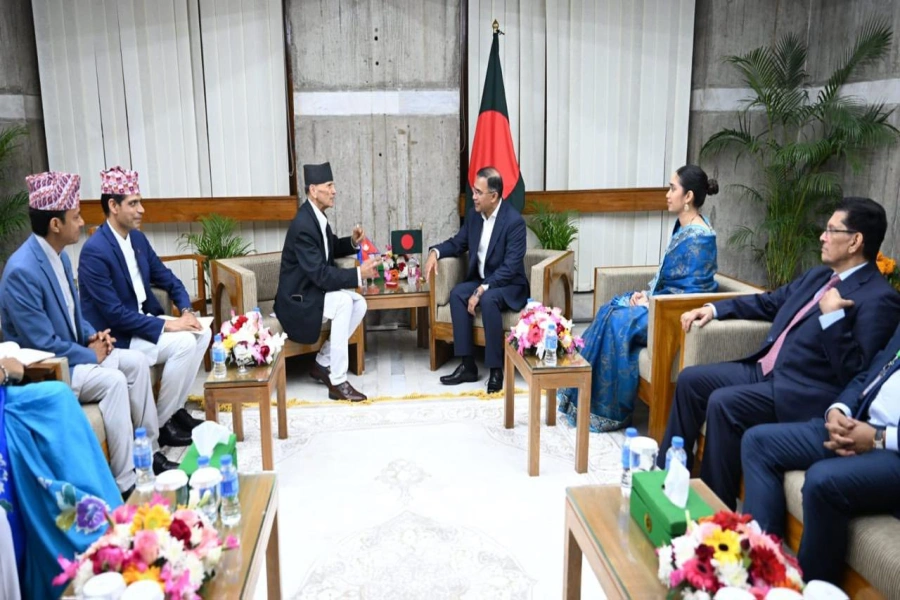Informal workers struggle to survive and are unable to save for difficult times like the current pandemic. Their lack of access to trade unions makes them voiceless.
Crises have a differential impact depending on pre-existing vulnerabilities. The Covid-19 pandemic-triggered lockdown in Nepal has hit daily wage workers or informal workers the hardest. It is instructive to understand the pre-existing vulnerabilities that have caused this extreme impact on informal workers as they constitute 85 percent of Nepal’s workforce.
First, informal workers are de facto dispossessed of their legal rights, including labor law, protection. Their working relationships and conditions are always subject to the discretionary authority and judgement of employers. The recent Labour Force Survey 2017/2018 reveals that most of such workers are employed without written contracts, which is a key contributor to their vulnerability and exploitation. In the absence of a written employment contract, they are deprived of basic employment security. Aside from unfair wages and indecent work conditions, informal workers do not receive what they are entitled to as per the government’s minimum wage standard. Informal workers, therefore, struggle to survive and are unable to save for difficult times like the current pandemic. Further, their lack of access to trade unions makes them voiceless. While Nepal’s constitution guarantees fair labor practice, appropriate remuneration, contributory social security, and access to trade unions as a fundamental right, 85 percent of the country’s workforce is unable to enjoy such rights. This raises serious questions about the implementation of the constitution and the rule of law.
Promises made to people should not be forgotten: NC Gandaki Pre...

Second, for a large proportion of the workforce, joining the informal economy is not a matter of choice but is due to the lack of decent opportunities in the formal economy. Low economic growth, the inability of the economy to generate decent jobs, inadequate legal frameworks, weak law enforcement, and lack of transparency and accountability in public institutions are some of the macro drivers of informality in Nepal. In addition, discrimination and exclusion based on gender and caste are other factors contributing to denial of entry into the formal economy. Nepal’s formal economy is heavily biased towards males (more than three-quarters of formal jobs are held by men), leaving less than a quarter for women. On the other hand, female participation in the informal economy is huge. Over 91 percent of employed women are in the informal economy.
Third, while the constitution guarantees the right to employment and social protection and social protection systems are meant to safeguard the poor and vulnerable during crises, daily wage workers in Nepal remain unprotected. The idea of social protection is that those able to work will be integrated into employment and contribution-based social security schemes, and those not able to work will be provided with tax-financed (non-contributory) social assistance allowances in the form of cash transfers.
The government has spent enormous amounts to design and implement a contributory scheme to cater to the needs of a mere 15 percent of Nepal’s workforce; note that this scheme excludes the aforementioned 85 percent who are informal workers. As is evident, this scheme was designed for the standard (white-collar) jobs in the formal sector dominated by economically better off, educated, males from upper caste groups. In sum, the existing contribution-based social security scheme serves socially and economically privileged workers/employees leaving most of the workforce unprotected and vulnerable.
The government’s non-contributory social assistance allowance program is targeted at specific social groups like the elderly, single women, people with disabilities, and some ethnic groups. This program does not target the economically poor and hence is not useful to address the vulnerability of informal workers especially during critical times like the current lockdown.
The treatment of informal workers is emblematic of how Nepali state structures and institutions are attuned to serve the interest of the well-off, consequently maintaining poverty and income gaps while perpetuating and reinforcing social and economic exclusion. So what should the government do? Three policy measures can be deployed across the country with guidance from the federal government.
First, immediate actions must be taken to fulfill the basic survival needs of the vulnerable, including informal workers. Cash transfer is a proven option to best address survival needs. In the current context of rampant corruption and the state’s lack of administrative capacity for relief distribution, the availability of financial service providers for cash transfers and partially functional markets helps mitigate leakage.
Second, labor-related laws, rules, and regulations across all sectors must drive a countrywide transition from precarious to decent jobs. The uniform, one-size-fits-all approach of existing contributory social protection measures has proven to be ineffective: a tailored approach is required for informal workers, including daily wage earners. The federal government must introduce incentives and subsidies to encourage the participation of such workers in the social protection system.
Third, existing tax-financed, non-contributory schemes must specifically target the economically poor segment, i.e. informal workers, and be shock responsive in nature. The above policy measures require reliable data on social protection beneficiaries, especially of informal workers who are most vulnerable in crises. The Constitution of Nepal 2015 and Local Government Operations Act 2017 entrust local governments with collecting and managing such data. However, the federal government must lead the development of data standards and indicators while enabling local governments to collect and manage the data.
The authors are associated with Niti Foundation







































